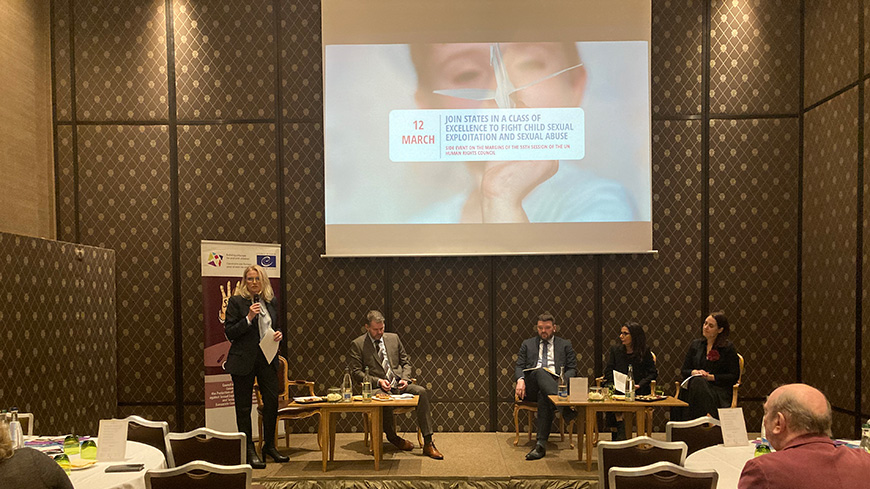The Council of Europe and the Permanent Mission of Iceland to the United Nations in Geneva have hosted an event “Join states in a class of excellence to fight child sexual exploitation and sexual abuse” on the margins of the 55th Session of the UN Human Rights Council. The event aimed at promoting the Council of Europe Convention on the Protection of Children against Sexual Exploitation and Sexual Abuse (the Lanzarote Convention) as the most comprehensive international instrument on protecting children from this crime.
“Sexual violence against children is a crime that’s destroying millions of lives worldwide. We need to act now, for and with children” stated Dr Najat Maalla M’jid, UN Special Representative of the Secretary-General on Violence against Children at the opening of the event. The Lanzarote Convention serves as a blueprint for states to strengthen legislation and policies to better prevent sexual exploitation and abuse of children, protect victims, prosecute offenders, and promote national and international co-operation. Being part of the Lanzarote Convention also allows states to benefit from the unique mechanism of monitoring and capacity building through the Lanzarote Committee.
Regína Jensdóttir, Council of Europe Coordinator for the Rights of the Child recalled that “the Lanzarote Convention may have been made in Europe, but it is an international treaty with global aims, and it is open for accession and ratification by any country in the world.” Currently 48 countries, from Europe and beyond, are parties to the Convention.
In his address, H.E. Asmundur Einar Dadason, Minister of Education and Children of Iceland, spoke about the “tangible progress” in his country since becoming a party to the Lanzarote Convention and encouraged more states “to join this noble cause”.
The promising practice for multidisciplinary and interagency co-operation, the Barnahus (“Children’s House”) was also presented at the event. Nina Koželj, Director General of the Punitive Law and Human Rights Directorate of the Ministry of Justice of Slovenia spoke about the Council of Europe-supported project on the establishment of the Barnahus in Slovenia.


